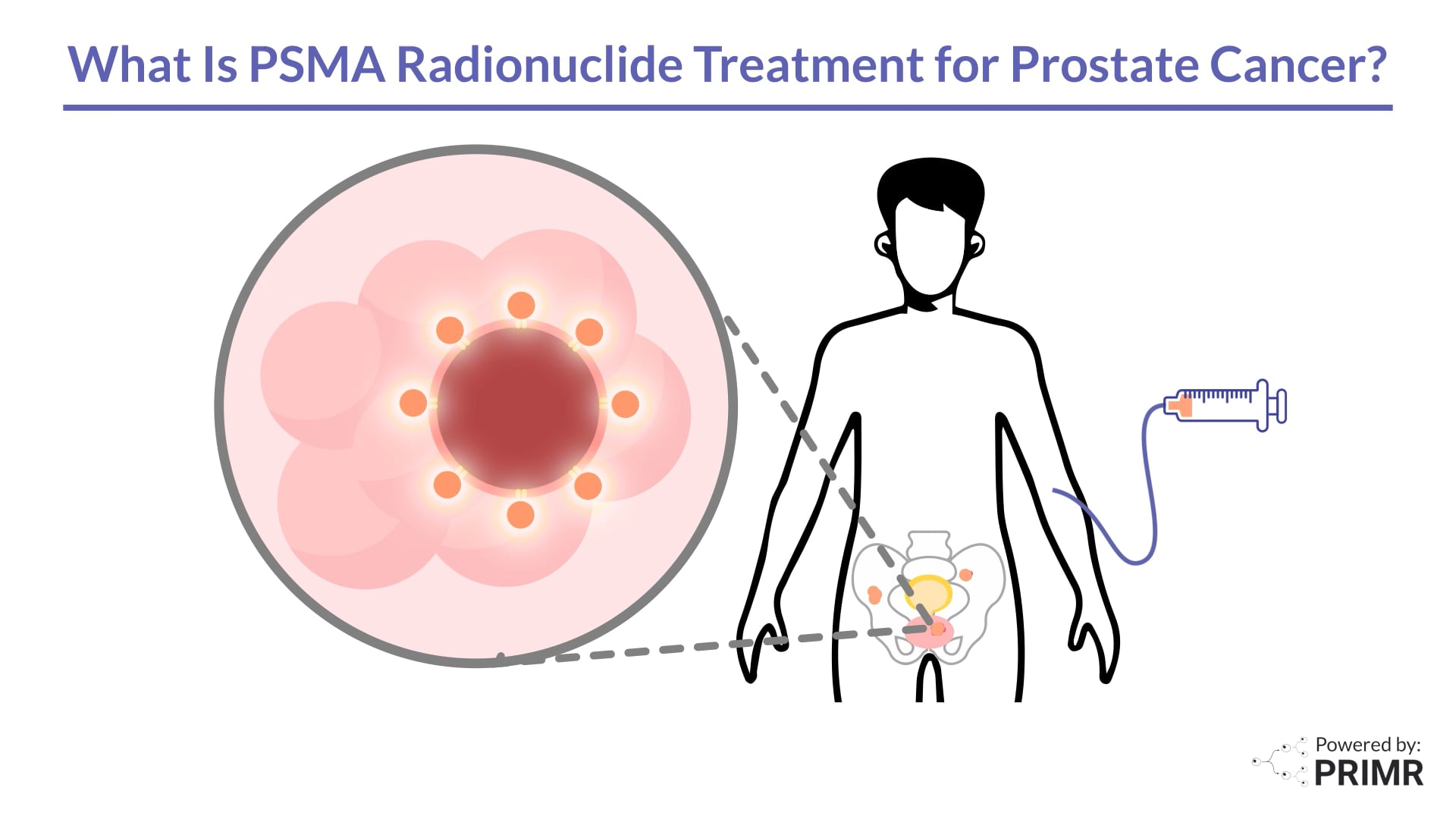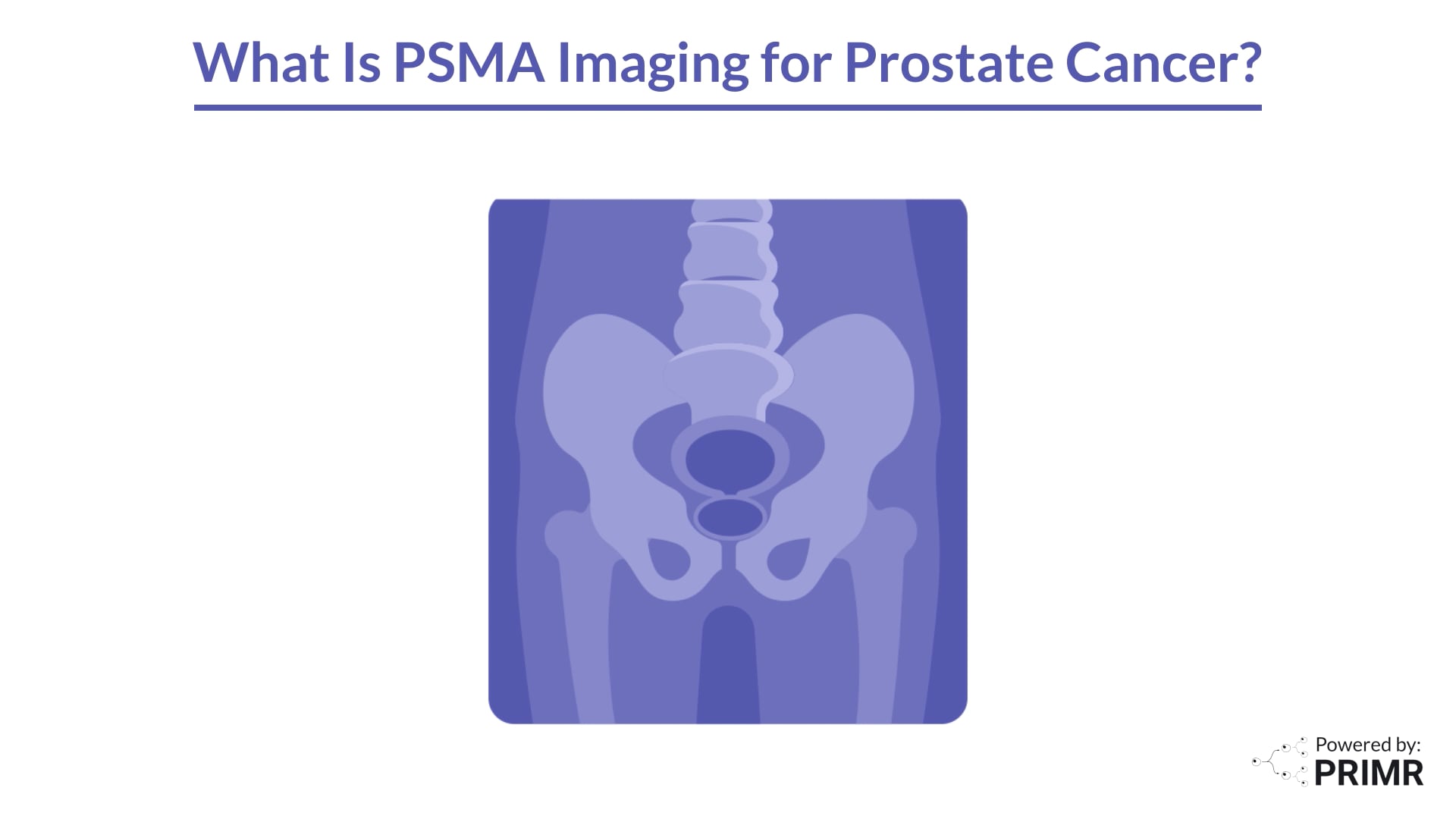What is Nuclear Medicine for Cancer?
This video is an overview of nuclear medicine and its role in cancer care. Using radiopharmaceuticals and imaging tools, nuclear medicine helps doctors detect, monitor, and even treat cancer with targeted precision.
Read the full video transcript below:
This video is an overview of nuclear medicine and why it plays an important role in healthcare, including caring for patients with cancer.
When diagnosing and treating patients with cancer, doctors use advanced imaging and targeted treatments. X-rays, CT scans, and MRIs can help to identify where tumors are. But they don't reveal how cancer cells behave inside the body, and whether they contain certain proteins which can be used to aid in diagnosis and treatment.
This is where nuclear medicine can help doctors both identify and treat cancer in addition to diagnose other abnormalities.
How Does Nuclear Medicine Work?
Nuclear medicine is a way for doctors to see what’s happening inside the body using an FDA- approved radioactive drug. This drug, called a radiopharmaceutical, is designed to target a specific part of the body, like an organ, tissue, or even a tumor. The radioisotope that is part of the drug continually produces an energy signal. Once the drug reaches the target site within the body, special imaging cameras are used to create images of the target area of the body.
Radiopharmaceuticals can show how certain parts of the body are working. For example, select radioactive drugs are used to show blood flow in the heart or kidneys while other ones can be used to measure air flow in the lungs.
Radiopharmaceuticals can also help doctors locate tumors by highlighting areas in the body where cells are more active than normal, which can be a sign of cancer, or attaching to proteins that are associated with cancer cells. In some cases, those radiopharmaceuticals can have different radioisotopes and can also be used as a treatment, because certain medicines target specific proteins that are more common on some cancer cells.
One type of camera used is a PET camera which stands for “Positron Emission Tomography.” This camera measures gamma rays produced by the radioisotope to create 3D medical images of your body's internal organs and tissues. A SPECT camera can also be used to create images of your body. SPECT (Single-Photon Emission Computed Tomography) scans work by measuring gamma rays produced by the radiotracer as it travels through your body.
In summary, nuclear medicine can help doctors detect abnormalities in organ function, detect certain cancers, and even deliver radiation therapy directly to cancer cells.
Key Applications of Nuclear Medicine in Cancer Care
Nuclear medicine also plays a role in treatment monitoring. By comparing scans taken before, during, and after treatment, doctors can see if a therapy is working and adjust the treatment plan as needed.
Beyond anatomical and functional imaging, nuclear medicine can also be used to treat cancer, known as targeted radiotherapy or RLT (Radioligand Therapy). Some RLT medicines deliver radiation to cancer cells, targeting certain proteins that appear on cancer cells in greater proportion than other healthy, non-cancerous tissues. While every medicine has risk, targeted radiotherapy is designed to minimize risk to healthy tissues by providing treatment directly to the cancer cells as opposed to non-targeted treatments like chemotherapy.
As research advances, nuclear medicine continues to evolve, offering additional options for precise cancer diagnosis and treatment. Scientists and researchers continue to study new radiotracers that target different types of cancer with the intent to improve outcomes and side effects. This can only be established through rigorous testing using these specialized tracers.
Nuclear medicine continues to advance, influencing how cancer is diagnosed and treated. It gives doctors more advanced tools to monitor how cancer responds to treatment and to better understand how specific organs are functioning. With early detection and precise treatments, nuclear medicine is well positioned to help improve patient care and outcomes.
This is not medical advice. This video is for educational purposes only. Talk to your doctor before making any medical decisions.

.jpg)
.jpg)
%20Thumbnail.png)







.jpg)
.png)



.jpeg)










.webp)



.jpeg)

